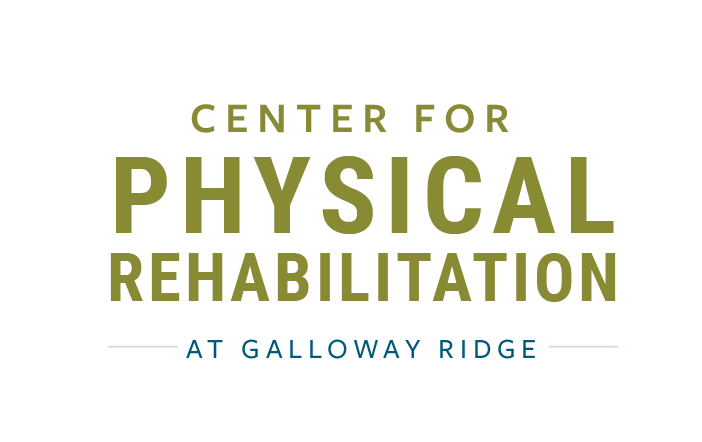As you strive for a healthier lifestyle and improved fitness, it’s possible to overlook one of the most crucial elements: nutrition. While hitting the gym regularly and staying active are essential, the fuel you provide your body plays a significant role in achieving your fitness goals.
Adopting healthy eating habits not only enhances your physical performance but also supports overall well-being. Here are seven healthy eating habits to help you fuel your fitness journey.
Prioritize Whole Foods
When it comes to nourishing your body for optimal performance, whole foods should be at the forefront of your diet. These include fruits, vegetables, lean proteins, whole grains, and healthy fats. Whole foods are rich in essential nutrients, vitamins, minerals, and antioxidants, providing your body with the building blocks it needs to thrive.
Incorporating a variety of colorful fruits and vegetables ensures you get a wide range of nutrients while keeping your meals flavorful and satisfying. With this healthy eating habit, you may also lower your risk of heart disease, cancer and type 2 diabetes.
One great tip is to shop on the perimeter of the grocery store. After you pick up your produce, stay on the outer edges of the store as you shop. This will help keep you from buying pre-packaged or processed foods that may be high in fat and sugar. These items are almost always in the middle aisles and cash registers
Balance Macronutrients
Achieving a balanced intake of macronutrients—carbohydrates, proteins, and fats—is key to sustaining energy levels, supporting muscle growth, and repairing your body after workouts.
Carbohydrates serve as the primary fuel source for physical activity, while proteins aid in muscle repair and recovery, and fats provide long-lasting energy and support hormone function. Aim to include all three macronutrients in each meal to ensure sustained energy levels and optimal performance throughout the day.
Here are some healthy examples of all three of the macronutrient groups you can begin incorporating into your diet today:
Carbohydrates
- Whole grains: Quinoa, brown rice, oats, barley, bulgur
- Fruits: Apples, bananas, berries, oranges, mangoes
- Vegetables: Leafy greens, broccoli, bell peppers, carrots, sweet potatoes
- Legumes: Lentils, chickpeas, black beans, kidney beans, edamame
- Whole grain bread and pasta: Whole wheat bread, whole grain pasta, whole grain wraps
Proteins
- Lean meats: Skinless chicken breast, turkey breast, lean cuts of beef or pork
- Fish and seafood: Salmon, tuna, trout, shrimp, tilapia
- Plant-based proteins: Tofu, tempeh, edamame, lentils, black beans
- Eggs: Whole eggs or egg whites
- Dairy: Greek yogurt, cottage cheese, skim milk, low-fat cheese
Fats
- Healthy oils: Olive oil, avocado oil, coconut oil
- Nuts and seeds: Almonds, walnuts, chia seeds, flaxseeds, pumpkin seeds
- Avocados: Rich in monounsaturated fats and fiber
- Fatty fish: Salmon, mackerel, sardines, trout, herring
- Nut butters: Peanut butter, almond butter, cashew butter
Stay Hydrated
Hydration is critical for maintaining overall health and supporting physical performance. Water regulates body temperature, lubricates joints, and transports nutrients and oxygen to cells.
Negative effects of dehydration include decreased energy levels, impaired cognitive function, and reduced athletic performance. Make it a habit to drink an adequate amount of water throughout the day, especially before, during, and after exercise.
According to the National Academy of Medicine, here is how much water you should drink per day based on your age, gender, and if you are pregnant or breastfeeding:
Age Daily Adequate Intake
1-3 years 4 cups, or 32 ounces
4-8 years 5 cups, or 40 ounces
9-13 years 7-8 cups, or 56-64 ounces
14-18 years 8-11 cups, or 64-88 ounces
men, 19 and older 13 cups, or 104 ounces
women, 19 and up 9 cups, or 72 ounces
pregnant women 10 cups, or 80 ounces
breastfeeding women 13 cups, or 104 ounces
Plan and Prepare Meals
Meal planning and preparation are essential components of maintaining a healthy diet, especially for individuals with busy schedules. By planning your meals ahead of time, you can ensure that you have nutritious options readily available and avoid relying on convenience foods that are often high in calories, sugar, and unhealthy fats.
Set aside time each week to plan your meals, create a grocery list, and prep ingredients or meals in advance to streamline your eating routine and make healthier choices effortlessly.
Practice Mindful Eating
Mindful eating involves paying attention to your food choices, eating habits, and hunger cues without judgment or distraction. By practicing mindful eating, you can develop a greater awareness of your body’s hunger and fullness signals, which can help prevent overeating and promote healthier food choices.
Take the time to savor each bite, chew your food thoroughly, and eat slowly to enhance digestion and satisfaction. Avoid eating in front of the TV or computer, as this can lead to mindless eating and distract you from recognizing when you’re truly full.
Listen to Your Body
Listening to your body’s cues can help you maintain a healthy relationship with food and support your fitness goals. Pay attention to how different foods make you feel and adjust your diet accordingly.
If certain foods leave you feeling sluggish or bloated, consider eliminating them from your diet. Likewise, if you find yourself craving carbs or protein, it may be a sign your body needs more of this nutrient source to support your activity level. Trusting your body’s intuition and honoring its needs is key to achieving long-term health and fitness success.
Practice Moderation
While it’s essential to prioritize nutrient-dense foods in your diet, it’s also important to practice moderation and enjoy the occasional treat. Depriving yourself of your favorite foods can lead to feelings of sadness and may lead to an episode of binge eating.
Instead, allow yourself to indulge in your favorite treats occasionally, but be mindful of portion sizes and frequency. By practicing moderation and balance, you can enjoy a varied and satisfying diet while still working towards your fitness goals.
Create Healthy Eating Habits at The Center for Physical Rehabilitation at Galloway Ridge
Incorporating healthy eating habits into your daily routine is essential for fueling your fitness journey and supporting overall well-being. But as you embark on changing your habits and lifestyle, you may run into roads. At The Center for Physical Rehabilitation at Galloway Ridge, our physical therapists and experts will help you forge healthy habits. Contact us today and take the next step to a healthy you!

